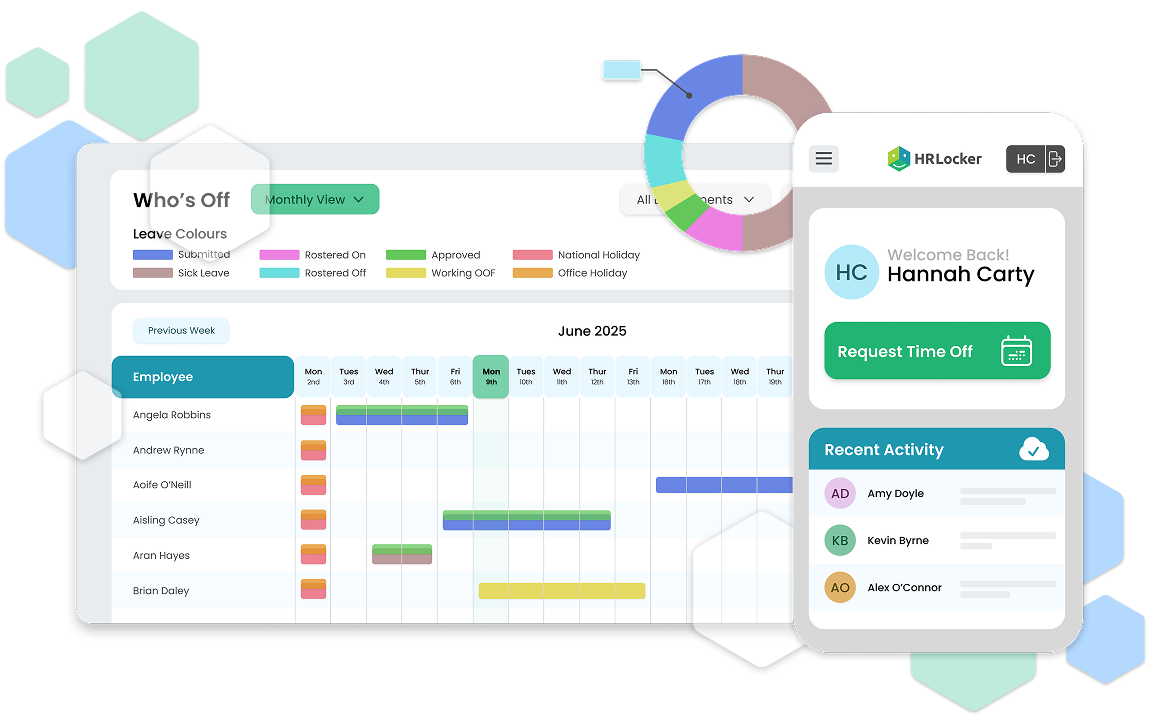With the social dimension of Environmental, Social, and Governance (ESG) increasingly evolving in importance in recent times, it is interesting to consider the implications for HR leaders in Irish SMEs and the different ways we can help drive diversity, inclusion, and equality.
This focus, of course, not only includes staff members within Irish SMEs but also considers the social impact or benefits on the wider local community, in addition to the supply chain, when your organisation delivers or creates products, goods, or services.
This is because more and more, social issues are taking centre stage with external stakeholders holding a vested interest in the ethics of a company they may be considering investing in.
With the ‘S’ in ESG all about creating a better world for everyone in it, it makes sense that as HR professionals, we should strive to drive social sustainability practices within our SME. Not only does a people-centric approach contribute to a better world around us, but an inclusive and diverse company also helps to attract and retain top-tier talent.
The Role of HR in Social Sustainability
ESG has certainly surged in terms of its prominence since its inception in 2005. We've mentioned how the social governance aspect is beginning to truly shape decision-making, which is interesting as it has been described as being more difficult to quantify than other areas of ESG in the past.
This is in contrast to environmental factors, which have arguably taken centre stage up until recently. This is possible because environmental factors are quantifiable—they are potentially easier to track and even correct, with discussions surrounding sustainable energy solutions, climate change and dangerous greenhouse gas emissions rightfully under the spotlight.
So when did the ‘S’ in ESG begin to build so much traction, and how can we lead with a social purpose and integrate ESG excellence into our strategies?
The S in ESG – A turning point
Firstly, the ‘S’ in ESG certainly seemed to receive more attention during the pandemic, as concerns over employee well-being, an increased sense of community, and more emphasis than ever on health and well-being, equality, employee safety, and employee benefits rose to the front of the agenda. While these issues have always been a major consideration for HR professionals, the public suddenly became particularly invested in companies that displayed positive examples of social sustainability and a duty of care towards employees. Those companies which were seen as acting in an immoral or unethical way faced scrutiny led by social media.
In fact, with social media having become a constant in our lives, we are arguably living in a time of ‘hyper transparency.’ As Benedict Haslam in ‘The Importance of Prioritising the S in ESG,’ mused back in 2022, ‘companies must consider how they create value for stakeholders beyond stakeholders.’

Indeed Michael Collins, Director of Government Affairs, M&G plc and Chair of the IRSG ESG workstream, explains in a report by the International Regulatory Strategy Group in association with KPMG: “Companies – often guided by public policy – have made real progress in achieving a better understanding of environmental impact and governance standards and in ensuring those standards are met. But social factors have not been given the same attention – until now.
“The unequal impact of the COVID-19 pandemic, the Black Lives Matter protests and the #MeToo movement have each been powerful recent drivers for this increased recognition of the need for social change and of the important contribution that business has to make. Social issues are now among the most pressing for companies in all markets as stakeholders, both internal and external, seek to understand how the firm they work for, buy from or invest in is treating the people whose lives its operations touch.” Michael Collins, Director of Government Affairs.
Transition in consumer trends
There has also been a notable transition in consumer trends, with a real focus and preference for products and practices that are made transparently and sustainably. For example, we need only consider the current preference consumers have for purchasing ethically produced garments or sustainable clothing options from the likes of Vinted as opposed to so-called ‘fast fashion’ online retail brands. This comes after media scrutiny revealed the uncomfortable and, at times, unethical working conditions that factory employees may have been subjected to in the past, such as low pay (below minimum wage), hazardous working conditions, as well as lengthy shifts with limited breaks.
One prominent example is when the factory called Rana Plaza infamously collapsed in Bangladesh in 2013, which arguably caused many consumers who may not have been conscious of their consumer habits before to suddenly take stock of the repercussions further down the supply chain.
Prioritising diversity, equity and inclusion
As well as the strong preference for transparently made products, in a similar way, there has been a transference in investor sentiment towards more ethical investments, as well as a preference for companies that prioritise diversity, equity and inclusion (DEI), and talent development.
The role of the HR leader when it comes to social sustainability is key, as not only can we help hold our organisation to account, but it has also been shown that increased levels of diversity and inclusion help attract and retain talent and drive performance.
This connection is well researched, with one study revealing companies with higher diversity in management earn 38% more of their revenues from products and services compared to companies with lower diversity, as explored by Fiona Buckley, Associate Faculty with the Irish Management Institute.
Gender diversity has been associated with benefits such as increased profitability, improved corporate governance, enhanced innovation and better decision-making, as pointed out by Women in Business in ‘Promoting Diversity and Inclusion in Ireland.’
With this in mind, the impact of HR policies on in-work poverty and working conditions in supply chains is invaluable and should include the accurate reporting of diversity in leadership teams, or the lack thereof. This is in addition to transparency and openness about executive pay and, vitally, ensuring ethical practices are followed in accordance with Irish law and regulations.
Ensuring ethical practices are followed includes preventing abuse within supply chains, such as modern slavery, as well as having strong whistleblowing policies and procedures in place for any staff members who have concerns about the organisation.

Building a people-centric ESG strategy
HR leaders should ensure employee morale and job satisfaction are kept high and, of course, help drive measures to ensure diversity, equity and inclusion within the workplace and across the wider community.
This can be done by making diversity a priority and integrating it into your mission, values and business strategy. To actively promote DEI, HR professionals must set measurable goals and objectives for inclusivity within the organisation—and strive to maintain them. It is also important to make such goals and progress publicly available to promote transparency and hold the company accountable.
HR leaders can also champion diversity by conducting training programs to raise awareness and promote fair decision-making in a bid to stamp out even unconscious bias, as well as outright gender discrimination.
Mentorship programs are extremely important, including internal company programs that encourage upskilling, confidence building, and networking opportunities for staff members.
HR departments can not only take a central role in managing such mentorship programs, but it is also an exciting opportunity to reach out to local schools and universities with work experience opportunities and workshops, which may help encourage a more diverse and inclusive workplace for STEM subjects and careers.
Enhancing employee engagement through CSR and volunteering
One example of enhancing employee engagement through volunteering is when MSD chose Teen-Turn, a charity in Ireland helping young girls to get involved in STEM, as its 'Neighbour of Choice'. As well as pledging money in support of the group, MSG encouraged its employees to volunteer by mentoring students in exchange for additional hours of paid annual leave.
Mastercard also held an annual Intercultural Day, championed in Dublin by the company’s vice-president of HR, Ann-Marie Clyne, who encouraged HR leaders to not only consider diversity as gender or ethnicity but to get more personal. Clyne said the definition of diversity “needs to evolve to include the characteristics, personal and professional skills and life experiences we cannot see about a person.”
Clyne speaks encouragingly about the importance of the workplace providing an open and inclusive environment to the point “a company should be a place where people can bring their whole selves to work, and where everyone’s voice is heard.” Clyne explains this cultural diversity extends to hiring from ‘non-traditional backgrounds’ which has led to Mastercard’s Dublin data science team having a DJ, a graphic designer and a writer among the group.

Not only is employee volunteering an invaluable way for HR leaders to coordinate social sustainability practices, but it also allows employees themselves the opportunity to upskill in other areas, for example by helping to organise events or by conducting a speech aimed at work experience students in an attempt to encourage more young girls and women to pursue a career in tech.
If a candidate has a passionate interest in encouraging more women into tech, this may act as a deciding factor when considering a job offer between the SME and a competitor. This is because more and more employees recognise the importance of a company that places a focus on diversity, inclusion and equity and which offers upskilling opportunities and subsequently, career progression.
Evidence-based insights convey how such important practices boost organisational loyalty and overall business performance. With all of this in mind, the benefits of skills-based volunteering and corporate social responsibility (CSR) activities on employee pride and satisfaction cannot be overstated.
The Importance of Common Good HR Management Practices
Effective HR management is essential in contributing to the common good by creating sustainable practices, promoting fairness and equity, and addressing global social issues.
Practical steps for HR leaders to implement these values in daily HR practices include focusing on initiatives and policies which drive and reinforce social sustainability.
Social sustainability recognises the importance of employee well-being and works to ensure a happy and healthy workforce that is content in their roles and with their work-life balance. It also focuses on an ingrained culture of diversity and social responsibility, which is driven and maintained by programs including mentorship schemes, providing training for interview panels on unconscious bias, remote or flexible working policies, buddy systems for women in the workplace, and more.
Integrating social sustainability in HR practices
Overall, the strategic advantage of integrating social sustainability into HR practices and the positive ripple effects on society and business are overwhelmingly positive, not just for attracting and retaining staff, but also for positively impacting the wider community and, indeed, at a global level.
Watch our webinar on integrating ESG into HR practices for better business and societal outcomes.

 9 min read
9 min read
 April 22, 2024
April 22, 2024 








